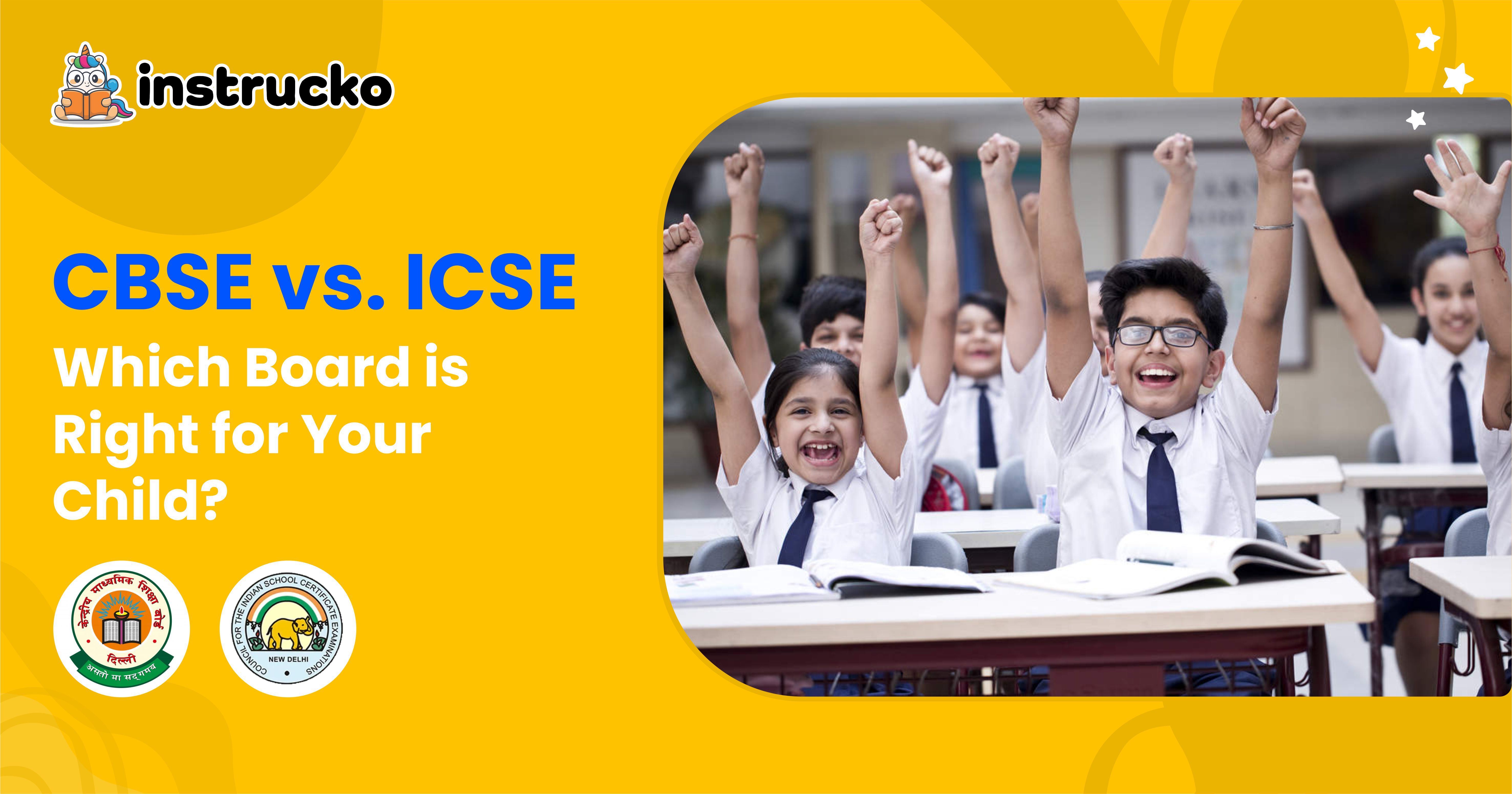Choosing the right educational board for your child is one of the most important decisions you’ll make as a parent. In India, two of the most popular choices are the Central Board of Secondary Education (CBSE) and the Indian Certificate of Secondary Education (ICSE). Each board has its own unique features, strengths, and challenges. In this blog, we’ll compare CBSE and ICSE to help you decide which one might be the best fit for your child.
Syllabi Comparison - CBSE vs ICSE
CBSE Syllabus
The CBSE syllabus is known for being compact and straightforward. It’s designed to prepare students for competitive exams like the IIT-JEE, NEET, and other national-level entrance tests. The curriculum focuses on core subjects like Mathematics, Science, and Social Studies, with an emphasis on application-based learning.
ICSE Syllabus
The ICSE syllabus is broader and more detailed. It covers a wide range of subjects, including Literature, Environmental Science, and even Art. The ICSE curriculum is designed to develop analytical skills and a deep understanding of concepts. It also gives students more exposure to practical and project-based learning.
Exam Patterns - CBSE vs ICSE
CBSE Exam Pattern
CBSE exams are designed to test students’ knowledge and understanding of the core subjects. The exam pattern includes objective-type questions, short answers, and long-answer questions. The focus is on assessing students’ ability to apply their knowledge rather than just memorising facts.
ICSE Exam Pattern
ICSE exams are known for being slightly more challenging. They include a mix of objective and descriptive questions, with a strong emphasis on detailed answers and in-depth understanding. The exams often require students to write longer answers, which helps develop their writing and analytical skills.
Focus Areas - CBSE vs ICSE
CBSE Focus Areas
CBSE places a strong emphasis on Science and Mathematics. The board’s curriculum is designed to prepare students for technical and scientific careers. CBSE also offers vocational subjects and is more flexible in terms of subject choice, especially in higher classes.
ICSE Focus Areas
ICSE focuses on a balanced education, giving equal importance to arts, humanities, and sciences. The board encourages a more holistic approach to learning, which includes developing language skills, creative thinking, and practical knowledge. This makes ICSE a good choice for students interested in a wide range of subjects.
Factors to Consider When Choosing a Board
Your Child’s Interests: If your child has a strong interest in Science and aims to pursue engineering or medicine, CBSE might be the better choice. If your child enjoys literature, arts, and a broader curriculum, ICSE could be more suitable.
Learning Style: CBSE is known for its straightforward approach, which is ideal for students who prefer clear concepts and application-based learning. ICSE, with its in-depth syllabus, suits students who enjoy exploring subjects in detail and developing analytical skills.
Future Plans: CBSE is widely recognised across India and abroad, making it easier for students to transition to higher education. ICSE, while also well-regarded, is known for its rigour and is particularly valued by institutions that focus on a broad, well-rounded education.
Teaching and Infrastructure: Consider the quality of schools in your area that offer CBSE and ICSE. The quality of teaching, availability of resources, and the overall environment can significantly impact your child’s learning experience.
Exam Stress: If your child is prone to exam stress, CBSE’s clear and concise syllabus might be easier to manage. On the other hand, if your child thrives on challenges and enjoys in-depth study, ICSE could be more engaging.
Conclusion
Both CBSE and ICSE have their own strengths and cater to different learning styles and goals. The right choice depends on your child’s interests, strengths, and future aspirations. It’s essential to consider your child’s unique needs and preferences when making this decision. Ultimately, whether it’s CBSE or ICSE, the most important thing is to support your child’s learning journey and help them reach their full potential.










